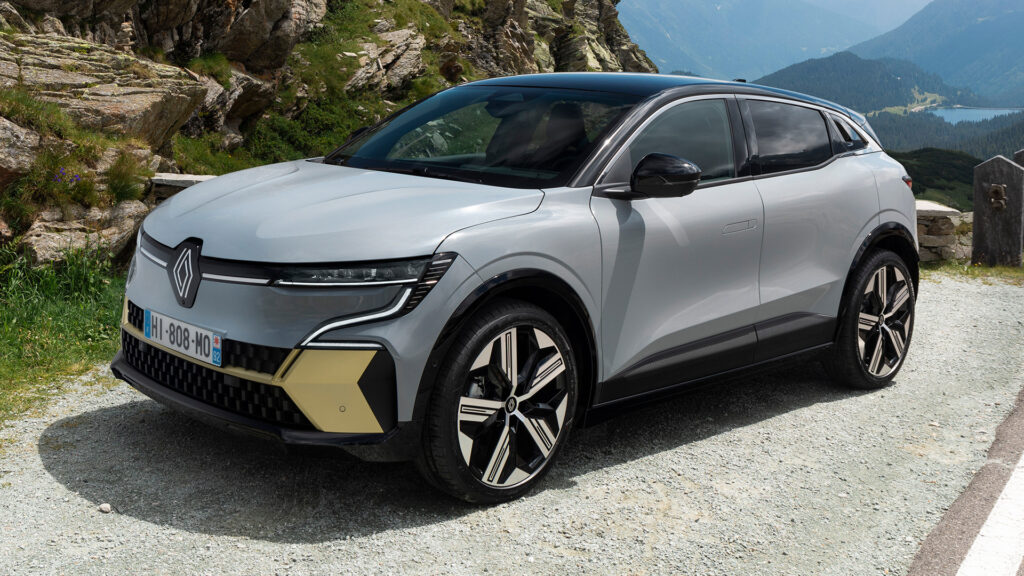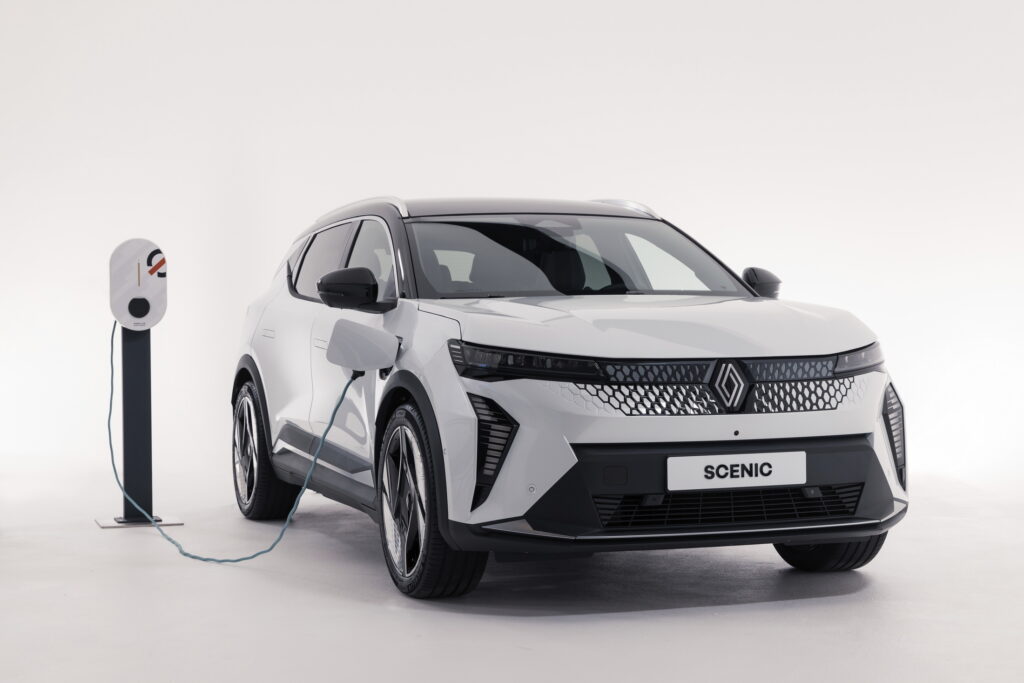Renault’s Plans for Future Models
The Renault company is working on the development of hybrid power units for the next generations of the Megane and Scenic models, which are expected to appear by 2030. Currently, both models are exclusively electric, but Megane sales remain lower than expected. The company prefers a range extender system, where the engine does not directly participate in driving the wheels but only recharges the battery.
Strategy for Developing Electric and Hybrid Technologies
Three years have passed since Renault boldly transformed its family models, Megane and Scenic, into electric vehicles. According to the new CEO of Renault Group, François Provost, the next generation of these models, expected by the end of the decade, may offer both fully electric and hybrid powertrains. Provost noted that larger cars are one of the company’s priorities, as the electric breakthrough worked successfully for compact models like the Renault 4 and 5, but not for larger cars such as the Megane.
We also believe that if [the adaptation] is not as fast as expected, perhaps you can complement it… with some extensions, such as a range extender or a plug-in hybrid, and that is what we are working on
Technical Solutions and Future Updates
Renault does not plan to abandon electric traction for the Megane and Scenic but will expand their appeal with additional powertrain options. Among the considered solutions is a system similar to the Nissan E-Force, where the engine is used exclusively for charging the battery. However, since a return to internal combustion engines will take several years, the company is preparing interim measures to boost Megane sales. One of them is an upcoming facelift, the prototype of which is already undergoing testing. Another initiative will be the installation of a larger battery. Currently, the Megane is equipped with a 60 kWh battery, providing up to 285 miles of range, while the Scenic has an 87 kWh battery with a 382-mile range.

Interim Steps and Competition
The Megane update, including the enlarged battery, is expected to be introduced simultaneously with the facelift. This will improve the model’s competitiveness against cars such as the Nissan Leaf with its 75 kWh battery. The company emphasizes that the new platform approach will unite the Megane, Scenic, Austral, Espace, and Rafale, which are currently only available as hybrids.

The transition to hybrid technologies could be an important step for Renault in the context of the European market, where demand for C-segment electric cars remains unstable. This also reflects a general trend among automakers to combine different types of powertrains to meet diverse consumer needs. The implementation of a range extender could significantly reduce “range anxiety,” which remains one of the main barriers to the mass transition to electric vehicles.


 by
by 
